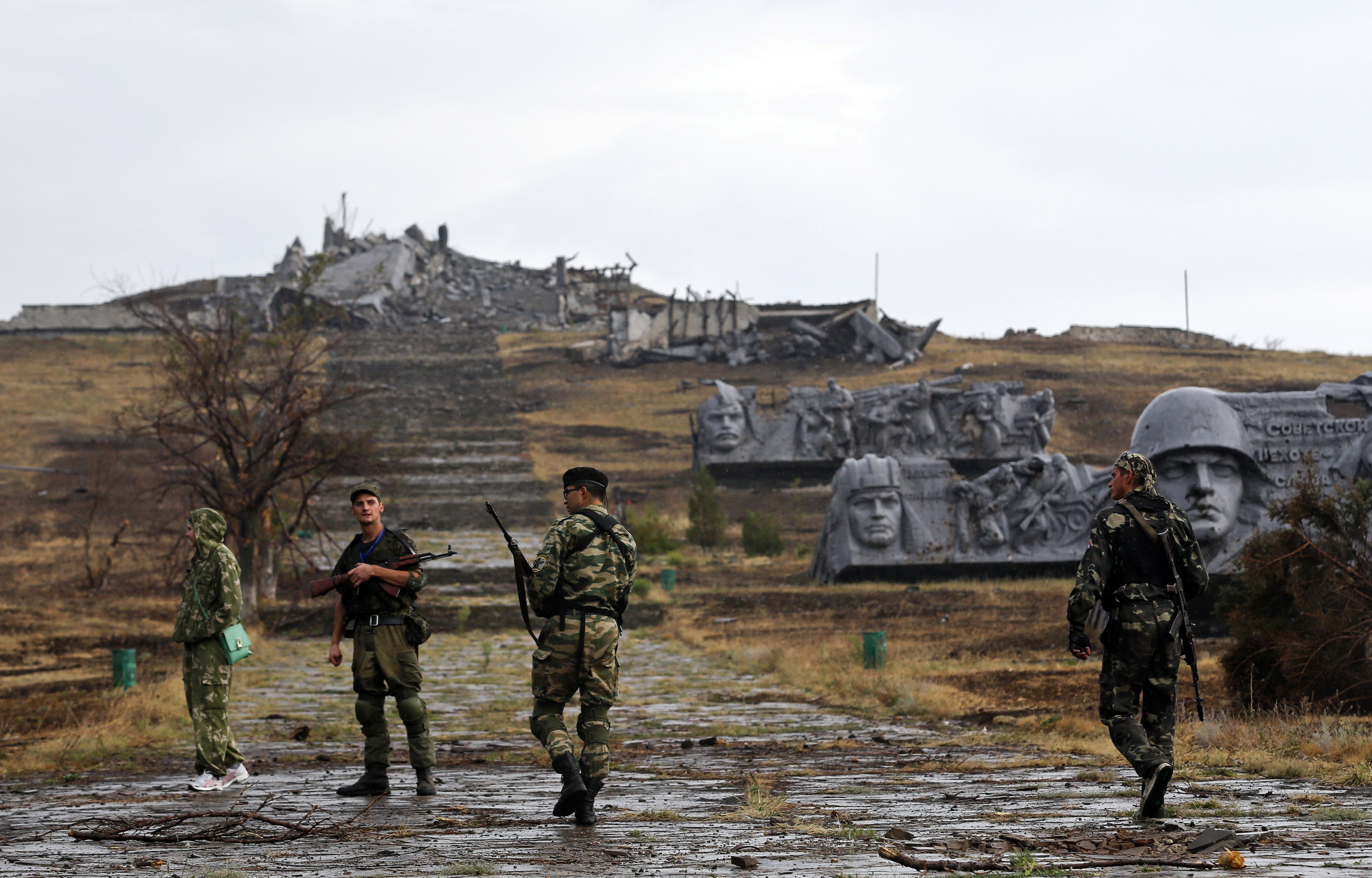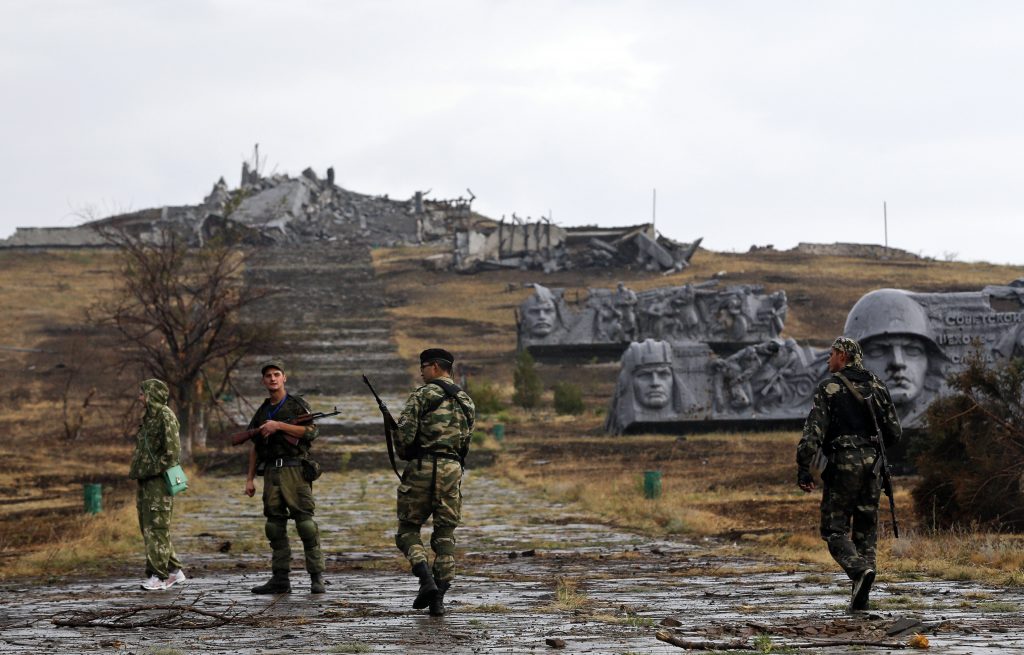
As Media Harden Their Accounts of Russia’s Assault, Will the West Harden Its Response?
Russia’s attacks into Ukraine this week (exactly six months after its troops began their invasion of Crimea) are bringing the actual word ”invasion” into media headlines. Atlantic Council analysts and others say the key question now is how hard a response the US and its allies will muster, notably by the NATO Summit in Wales that opens in seven days.
Russian President Vladimir “Putin is again raising the ante,” with just the latest of many escalations in Russia’s attack on Ukraine, said Atlantic Council Senior Fellow Adrian Karatnycky. “If the West does not respond with significant lethal military aid to Ukraine and with broad sanctions on entire sectors of Russia’s economy, Putin will view it as open license to expand his now-transparent invasion. By contrast, such a focused reaction from the West can open the door to a real negotiation between Russia and Ukraine.”
While Moscow’s assault on Ukraine has been obvious for months, it has included enough indirection and (implausible) denial from the Kremlin to mute its treatment in international news media. Ukrainian troops’ advance in the past ten days have forced Russia to escalate its role to avoid defeat – and that has hardened the story. US officials say Russian troops have hauled cannons and missiles miles deep into Ukraine’s Donbas region. British and Russian reporters have been eyewitnesses to Russian armored columns driving across the border into Ukraine. Ukrainian and Western officials and journalists report a new Russian armored assault since Monday into Ukraine’s Azov Sea coast, fifty miles south of the main battle. Russian soldiers for weeks have posted letters and photos on their social media pages describing their attacks into Ukraine; ten of them have been captured twenty miles deep inside Ukraine; and now Russia secretly is burying an unknown number of them after they were killed in the Ukraine war.
US Government Hesitates
So now months of media coverage of a “pro-Russian insurgency” in Ukraine suddenly has hardened into headlines describing an “invasion” by Russia. US officials have avoided the term, although Ambassador Geoffrey Pyatt tweeted from Kyiv today that “satellite images show Russian forces engaged in military operations in Ukraine.” The delay in any official US declaration of an “invasion” is not because the word is incorrect, but because it’s inconvenient. Openly acknowledging Russia’s invasion of Ukraine will help build a political imperative for a tougher transatlantic response, yet consensus on any response is hampered by divisions within both the US administration and Europe.
Whatever name the US government gives to Russia’s assault, the critical step by the West is to meet Putin’s escalated war on Ukraine with an escalated response, according to experts such as the Atlantic Council’s John Herbst. Putin has declared Russia’s right to attack any country in which ethnic Russians or Russian speakers live, in order to “protect” those people – and Moscow’s wars on Ukraine, Georgia and Moldova dramatize this doctrine’s intent to impose, by intimidation or by force, Russian domination over all the countries of the former Soviet Union, Herbst told CNBC. The West must now “make clear to Moscow the cost of aggression; it must make aggression too expensive,” he wrote this week in a note to colleagues.
Raising the cost to Putin and his supporters requires three steps, according to Herbst and other analysts: new Western sanctions on Russia, the provision of essential defensive weapons and training to Ukraine’s army, and a shift of some NATO forces eastward toward Russia that forces Russian generals to understand that war in Ukraine is harming Russia’s security rather than assuring it.
More Sanctions, Arms for Ukraine
Herbst is one of several former US ambassadors to Ukraine calling for a quick toughening of sanctions. On MSNBC Wednesday, former ambassador William Taylor of the US Institute of Peace and Atlantic Council Senior Fellow Adrian Karatnycky urged the administration to impose sanctions on Russia’s entire banking sector (of which only about 30 percent currently faces US restrictions, Taylor said).
Sanctions are “essential but probably not sufficient,” Herbst wrote in his note. The US and Europe should provide Ukraine’s military with weapons, to “include anti-armor, anti-aircraft and anti-missile capacities.” Western help “should also include technology to secure the border and real-time intelligence,” he said.
Finally, Herbst says, “We need to strengthen NATO doctrine regarding Russia.” Years ago, when Russia and NATO established a security partnership in Europe through the NATO-Russia Founding Act, the Alliance agreed “not to build infrastructure or to deploy permanently major forces in the eastern member states,” he said. But Russia’s turn from partner into Europe’s greatest security threat means that policy must be reviewed. If the Alliance cannot accomplish that review by next Thursday’s opening of its summit, NATO should establish “temporary but major deployments in the Baltic states, and perhaps Poland and Romania, too.”
Right now, neither Europe nor the US administration has an internal consensus on a hardened response. Taylor said on MSNBC that one camp in the US government sees the heightened response, and notably a provision of weapons to Ukraine as a risk to further escalation. The other view – which must ultimately prevail to protect Europe’s security – is that Russia already is committed to escalation, as its six months of covert invasions, proxy war and now overt invasion demonstrate. The only thing that will stop it is the understanding in the Kremlin that the United States and Europe will increase Russia’s cost for these attacks beyond anything that Putin and his supporters are willing to pay.
James Rupert is an editor at the Atlantic Council.
Image: Fighters of the Russian-backed "Donetsk People's Republic" survey a battle-damaged Soviet war monument outside Donetsk city August 28. The separatists, now reinforced by Russian army artillery, armor, and paratroopers from Russia’s 76th Airborne Division and other units, have slowed the Ukrainian army’s recovery of southeast Ukraine. (REUTERS/Maxim Shemetov)
